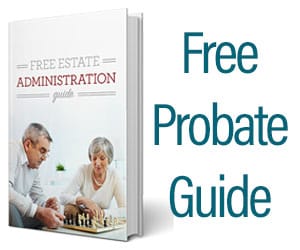In the past, it seemed that the only people setting up trust funds for their children and grandchildren had a lot of money like the Rockefellers. Thanks to an increase in accumulations through the stock markets and increased property values of homes, more ordinary people are becoming wealthy and, because of this, trust funds are a lot more commonplace in our society. Both parents and grandparents are taking advantage of trust funds in their estate planning to help preserve their wealth for future generations and to minimize the death taxes. This is a great thing to the generations that will be receiving the assets.
There are a couple obvious benefits that can be provided by setting up a trust fund:
- Assets are protected for the beneficiary. A trustee is appointed to manage the property that is listed in the trust. This will typically be someone that is experienced in handling money well. A company can be used to handle the money or a parent (although this may not be the best idea where taxes are concerned). By appointing a trustee to oversee the assets, the beneficiary is unable to squander the property. So, in other words, the property is protected for the future benefit of the beneficiary.
- The person setting up the trust can save money on taxes. Gift, income, and estate tax advantages can be applied to the assets when using a trust
Oftentimes, grandparents with a lot of wealth will take advantage of a trust to leave assets to their grandchildren. They can choose to either give the assets to the grandchildren while they are alive or they can leave the money in the trust to be passed on at the time of their death. When their own children are wealthy separate from them, grandparents will often choose to leave money to their grandchildren wo they will not complicate their children’s estate plans.
For A Free Estate Information Guide
Trusts Available for Children
If you leave a trust for your children, you will want to be able to qualify it for the annual gift tax exclusion that is available. Since your child cannot touch the money until he or she is an adult, the exclusion is not automatic. The gift tax law views the interest that will be received by the trust and that interest does not qualify automatically for the annual gift tax exclusion. There are two types of trusts, though, that do qualify for the exclusion for minors. They each get their name from the Internal Revenue Code that provides them.
- The Section 2503(b) Trust. This type of trust demands that the income must be distributed to the child at least annually while he or she is still a minor. This doesn’t mean that the income must be handed directly to the child. It can be put in a custodial account if the amount is too great or the child is too young to handle the money. The child must also be given the right to withdraw money from the trust that is, at a minimum, equal to the gift tax exclusion. Because the child is a minor, though, the parent is the one that decides on whether to exercise that right.
- The Section 2503 Trust. This kind of trust is set up to allow the principal and income to be available to the child until the age of 21. All the money remaining in the trust must be given to the child when they turn 21. The child can decide at that time if they want to extend the trust further.
The Rights of the Child in the Trust
One important thing to remember is that once you “gift” the child money, it is now theirs. You will not be able to take it back under any circumstance. Since your child is now the beneficiary of the trust, they are entitled to whatever principal or income that comes from that trust that the documents state they are entitled to. While the child is a minor, this is usually the only income.
At what age should your child learn they are a beneficiary to a trust? Like anything else, there is no magic age. This will all depend on the circumstances and if they need to know. In general, though, it tends to be best to give your child only as much information as they can handle with financial matters. There is no good reason to let your preteen know that their grandparents have set up a million-dollar trust for them. As they prepare for college, though, it may help to ease some of their financial concerns to know that there is money for them to use for their college of choice. It is always important to prepare any child to handle their money wisely before they have it in their hands.
Once the trust comes to its end and is distributed to the child, he or she is entitled to know about all the dealings with the money from the trust from the trustee. This means that the trustee is obligated to inform the child how the money was spent while in their care. If the trustee mishandled the money and is in violation of state law or the terms of the trust, the child can pursue a lawsuit against the trustee for damages.
Setting up the Trust
A trust is a long-term decision with implications reaching far into the future. A trust will allow your wealth to grow until it reaches the hands of your children. On the other hand, you have the burden of predicting how the assets will benefit the adults your children will become.
There are several steps in helping you set up a trust for your children.
- Determine a trustee to take over your assets upon your death. If your trust is a living trust, this can be yourself initially, but you will need a successor to oversee the distribution of your assets that you have documented after you die. If your children are minors at the time of your death, you will want to appoint a custodian to manage the finances your children receive for their care.
- Make the decision on how and when your children will receive their bequests. If you have a child that is irresponsible with money, the trust can be distributed in increments as they age so they will not burn through all the money at one time. If, on the other hand, your child is brilliant and will likely attend a high dollar college, you can denote money specifically for their education.
- Prepare the documents of your trust. The best way to do this is through an attorney. This will help keep things straight forward and less complicated for everyone to understand after your death. There are some living trust kits you can purchase online, too, that you can have your attorney review after you complete.
- Transfer your wealth into your trust. If you have very young children, you can add money to your trust through long-term investments that will grow in worth over the years. Make sure you don’t put all your money into the trust this way, though. You will want some cash to be available for the care of your children if it is needed until they are old enough to take ownership of the trust.
As you can see, having a trust set up for your children is a wise idea, especially if you have a lot of wealth. It is a rather straightforward process to set one up, but best done under the guidance of an attorney.
Download Free PDF Guide On The Probate Process



